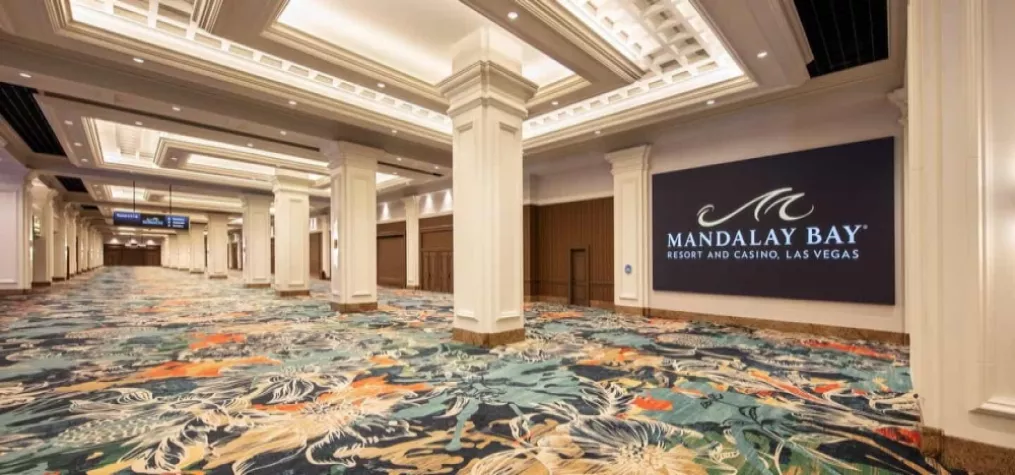How a Green Team Can Help You Plan More Sustainable Events

Sustainable practices are fast becoming a must for events. According to the Eventbrite 2020 Event Trends report, 59 percent of North American event professionals are taking steps to improve the environmental impact of their events — up from a mere 6 percent in 2019.
Additionally, an overwhelming majority — or 93 percent — of hosted buyers and visitors who attended IMEX 2018 said they are interested in planning events in a more sustainable matter, according to post-event survey results.
One of the ways corporations, associations, event venues and suppliers are codifying those intentions is by forming something called green teams.
A green team is a cross-functional group that identifies ways to help its organization(s) operate in a more environmentally sustainable fashion, provides education to those involved and helps oversee implementation.
We spoke with representatives from Detroit’s TCF Center, Portland’s Oregon Convention Center and San Francisco’s Key Events to learn about their respective green teams’ compositions, charters and programs.
TCF Center Green Committee: Stewards of the Local Environment
Claude Molinari, general manager of Detroit’s LEED Gold-certified TCF Center, says that event-related venues create an enormous amount of waste — much of which can be reduced, reused or recycled if the right procedures are in place. “As economic engines of the communities, convention centers have a duty to be good stewards of the local environment because it benefits the entire region,” he explains.
This belief in leading the way led to the formation of the TCF Center Green Committee back in 2011. The committee comprises members of every department and vendor company housed in the center, and has led efforts such as significant upgrades to the facility’s energy-saving HVAC equipment, water-saving fixtures, a green (living) roof and overall energy reduction enhancements — all of which contributed to the venue achieving its LEED Gold status.
Molinari says committee responsibilities vary based on subject matter expertise and interests. For example, the center’s food and beverage/catering provider is responsible for food efficiency; the operations team, for waste diversion; and marketing, for developing green event messaging and materials.
A public commitment to sustainability can be a powerful draw for business. Sustainable Brands selected the TCF Center for its annual conference in 2017 and returned to the venue for its 2019 event.
"TCF Center's commitment to sustainability and reducing its environmental impact was an important factor in why we wanted to bring our global event to Detroit," said David Fiss, Sustainable Brands’ director of business development, partnerships and event strategy.
Planners and exhibitors can access TCF Center’s green initiatives educational materials here.
Oregon Convention Center Green Team: A Review Board for Sustainability Initiatives
The Oregon Convention Center was awarded LEED Platinum certification in 2014 and is the only U.S. convention center to have earned a level 4 APEX/ASTM certification (the first standards created specifically for green meetings and events). OCC Sustainability Manager Ryan Harvey holds LEED Green Associate certification.
The OCC’s Green Team is made up of employees from different workgroups within the venue that serve as a review board for its sustainability department. They meet for an hour each month to discuss and pursue sustainability-related issues, in addition to launching and maintaining sustainability campaigns.
The team is also responsible for organizing employee events. These have included a household hazardous waste reuse fair, a donation drive for the Portland Rescue Mission, and a cleanout of office and storage spaces for reuse and donation purposes. Harvey says the OCC has also recently launched a cork recycling program and opened a materials recycling station where employees can recycle items such as batteries, cell phones and single-use plastic bags.
As with any type of volunteer group, Harvey says it’s important for all participants to understand and agree on their responsibilities and the time commitment involved. This will help avoid confusion and/or drop-off in participation. He also believes it is easier for participants to share their thoughts freely in a peer-to-peer environment, so opted to have a sponsor in senior management instead of having an executive attend the meetings.
Key Events: Sustainable Environmental and Business Practices
Corporate event planning and destination management agency Key Events relies on its sustainability team to help drive initiatives both internally and for clients. The team consists of members from sales, creative services and production to provide clients access to what Megan Warzeniak, Key Events’ director of business development, calls “impact options” at every stage of the journey.
“For us, sustainability is about incorporating socially and environmentally responsible decision-making into every phase of the event process,” she says. “This includes everything from leveraging LEED-certified sustainable venues when possible to sourcing four- and five-star accommodations that have adopted formal anti-human trafficking policies.”
In addition to green initiatives, the team also focuses on communications and community, including diversity and inclusion. Warzeniak says the team structure also facilitates sustainable business practices by giving junior staff more growth opportunities with the goal of greater talent retention. Key Events’ interns and junior staff are given the opportunity to project manage segments of internal initiatives with supervision from more senior staff. This provides them with the experience they need to manage projects for clients along with the knowledge of best practices for sustainable events.
Stay tuned for our companion article, “10 Tips for Creating a Successful Green Events Team.”
Don’t miss any event-related news: Sign up for our weekly e-newsletter HERE and engage with us on Twitter, Facebook, LinkedIn and Instagram!


Add new comment